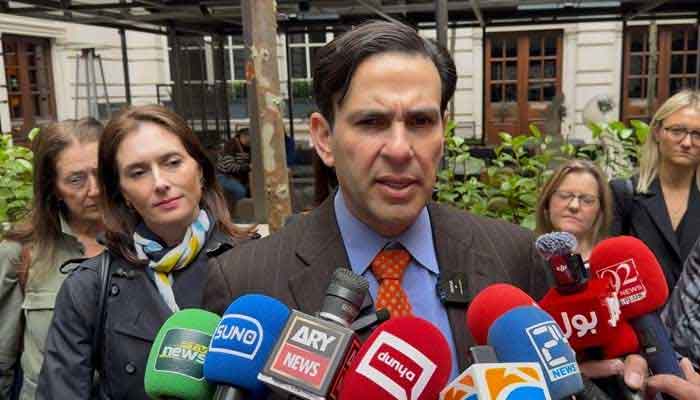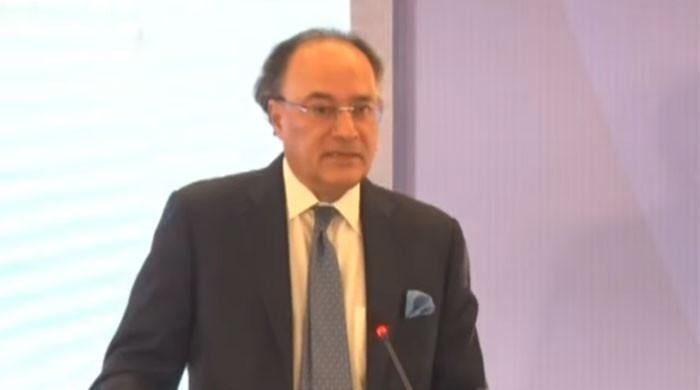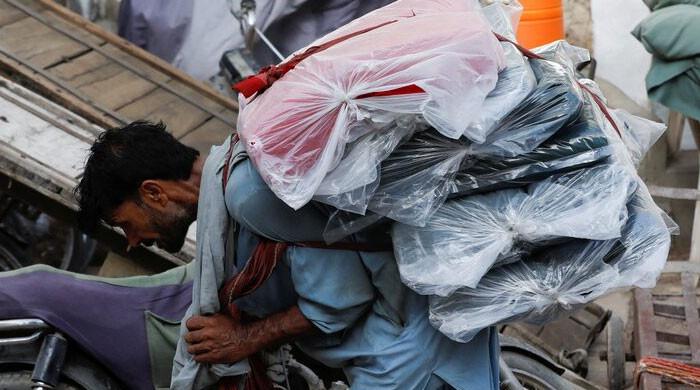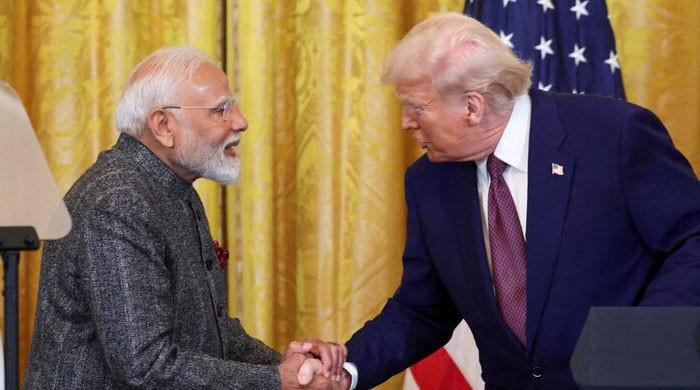TRG Pakistan management acted fraudulently, illegally in Zia Chishti case: SHC
Sindh High Court directs venture capital firm to immediately hold board elections
June 20, 2025

LONDON/KARACHI: In a scathing 52-page decision, the Sindh High Court has found that TRG Pakistan’s management was acting fraudulently and that Bermuda-based Greentree Holdings historic and prospective purchase of TRG shares were illegal, fraudulent and oppressive.
The Sindh High Court has further directed the venture capital firm to immediately hold board elections that have been overdue and illegally withheld by the existing board since January 14, 2025.
In the landmark ruling, the SHC has blocked the attempted takeover of TRG Pakistan Limited by Greentree Holdings, declaring that the shares acquired by Greentree, nearly 30% of TRG’s stock, were unlawfully financed using TRG’s funds in violation of Section 86(2) of the Companies Act 2017.
“Having concluded that the affairs of TRGP are being conducted in an unlawful and fraudulent manner and in a manner oppressive to members such as the Petitioner (Zia Chishti), the case falls for corrective orders under sub-section (2) of section 286 of the Companies Act,” Justice Adnan Iqbal Chaudhry concluded.
The case was brought by the firm's former CEO and founder Pakistani-American technology entrepreneur Zia Chishti against TRG Pakistan, its associate TRG International and TRG International’s wholly-owned shell company Greentree Limited.
In addition, the case named AKD Securities for managing Greentree’s illegal tender offer as well as various regulators requiring that they act to perform their regulatory duties.
The case centred around the dispute that shell company Greentree Limited was fraudulently using the capital firm's own funds to purchase TRG Pakistan’s shares in order to give control to Chishti’s former partners Mohammed Khaishgi, Hasnain Aslam and Pinebridge Investments.
According to the court ruling, since 2021, shell company Greentree had purchased approximately 30% of the capital firm shares using $80 million of TRG’s own money, which means that that the directors of TRG Pakistan allowed company assets to be funneled through offshore affiliates TRG International and Greentree for acquiring TRG’s shares - a move deemed both fraudulent and oppressive to minority shareholders.
The Sindh High Court also found illegal Greentree’s further attempt to purchase another 35% of the venture capital firm's shares using another $70 million of TRG’s money in a tender offer.
The Court ruled that such financial assistance undermined corporate governance, violated fiduciary duties and aimed to transfer control of the company unfairly.
The entire scheme was found to be fraudulently conducted by the existing board and management of TRG (including Mohammed Khaishgi, Hasnain Aslam and Pinebridge Investments nominees John Leone and Patrick McGinnis) in an attempt to gain illegal voting control over the business, according to the court ruling.
This finding of fraud makes the existing board of the firm liable for the harm it has caused the business.
Legal experts stated that this is a landmark decision in Pakistan’s corporate history. It shows that boards are accountable to shareholders and puts boards on notice that they cannot illegally withhold elections.
The ruling is a major victory for the tech entrepreneur Zia Chishti against his former partners and the legal ruling paves the way for him to take control of TRG in a few weeks. With Greentree’s 30% shareholding invalidated, Chishti and his family are now the largest shareholders of TRG with over 20%. Market experts predict that Chishti will now sweep the upcoming elections.
In March this year, UK’s leading paper The Telegraph issued an unprecedented apology to Zia Chishti for publishing allegations that he had engaged in sexual misconduct. In its apology, the newspaper said a series of articles it published from November 2021 and February 2023 reported on allegations made by a former employee of Afiniti, Tatiana Spottiswoode, to the United States Congress, about the company’s founder and CEO Chishti.
Chishti strongly disputed these allegations. Although Chishti sought to do so, the US Congress did not give him the opportunity to refute the allegations. The paper apologised to Chishti and paid him damages and legal costs. The apology will remain on the 13 articles published by The Telegraph forever.
Legal experts also stated that TRG’s existing board will likely attempt to appeal this decision to the Supreme Court. TRGP executives didn’t comment but a source in TRGP said: “In a long battle, there are twists and turns. It’s an appeal-able decision.”











